Sommelier Protocol Team Weekly Update #2
Welcome to the weekly Protocol team update on the Sommelier protocol upgrades! This is the second week of the Informal's audit and the team's delivery of upgrades to the Sommelier Gravity Bridge.
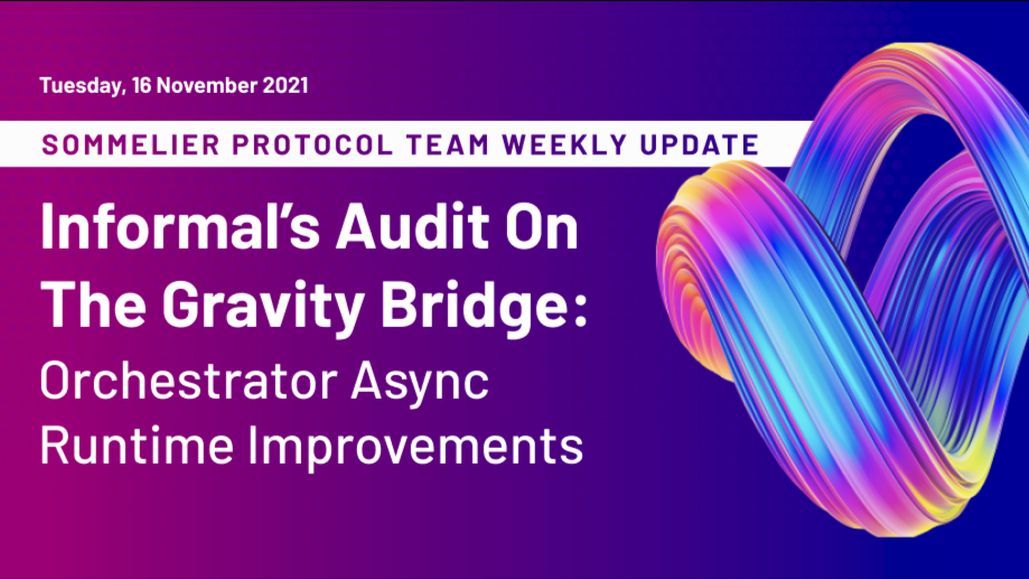
One of the issues informal systems presented after their audit on the gravity bridge is the improvement of the orchestrator’s asynchronous runtime. The orchestrator is a single binary that combines the Eth Signer, Oracle, and Relayer for ease of use by the Validator Operator.
The use of Tokio::time in place of Instant::now for time management
First, the Orchestrator asynchronous runtime execution time was reduced efficiently with the use of tokio::time::*. Previously, the Orchestrator asynchronous runtime used instant::now() to manage time like gRPC to Cosmos.
Instant is a Rust standard library that measures a monotonically nondecreasing clock. However, offloading these low-level details to Future on Tokio runtime increases performance. This is because Futures are optimized to be polled efficiently. Also using Instant::now() leads to non-exact timeouts and loop speed because the checks are always if the elapsed time is greater or lesser than a fixed Duration.
This means that switching from Instant::now() to tokio::time::* can increase general performance as well as task execution time in the Orchestrator runtime.
Multi-threaded support for the Orchestrator
Another improvement that informal’s audit suggests is multi-threaded support for the Orchestrator via the use Tokio runtime instead of actix_rt. The Orchestrator uses actix_rt, a Tokio-based single-threaded async runtime for the Actix ecosystem.
However, multi-threaded support in the Orchestrator will enable multi-threaded performance improvements. For instance, with multi-threaded support concurrent execution of two or more tasks for maximum utilization of CPU will be allowed.
Parallelization at Many Loops
The ability to enable parallelization at many loops is another benefit of multi-threaded programming. Loop-level parallelism involves the extraction of parallel tasks from loops. This helps to speed up the overall execution time of the program.
Parallelization of the Orchestrator will involve Sommelier’s protocol team using rayon and futures::stream. Both rayon and future::stream are data-parallelism libraries that make it easy to convert sequential computations into parallel. These libraries make it easy for sequential iterator to execute in parallel.
To learn more about Sommelier, please visit https://sommelier.finance/
To use Sommelier, try the Pairings App at https://app.sommelier.finance/
To participate in the community, please join the Telegram group https://t.me/getsomm.
To follow the project on Github, please star the project https://github.com/PeggyJV/sommelier.
More articles

Is Speculation Killing Crypto’s Future?

Sommelier's Path Forward: Embracing Revenue Over Narrative

Sommelier January Update

Sommelier Upgrades Cellar Architecture to Enable the Most Powerful DeFi Strategies in the Market

Real Yield USD is Coming to Maximize Stablecoin Yield

Retrospective on 2022 and the Journey Ahead

FAQ - Patache Digital’s Steady Strategies

Patache Digital: Risk Management Discussion

Strategy Deep Dive: Patache Digital

Strategy Provider Spotlight: Patache Digital

User Guide: How to Participate in Strategies on Sommelier

Sommelier Ambassador Program

Strategy Tokens: What Are They and How Do They Work?

6 Core Principles of Sommelier

10/10/22 - Deep Dive on Cleargate Backtesting

Strategy Provider Spotlight: Seven Seas

Deep Dive on Trend and Momentum Strategies

Strategy Provider Spotlight: ClearGate

Supporting Strategy Providers on Sommelier

Sommelier Protocol Team Weekly Update #11

ELI-5 Explanation of the Data Science behind Sommelier’s First Aave Cellar

Sommelier Protocol Team Weekly Update #10
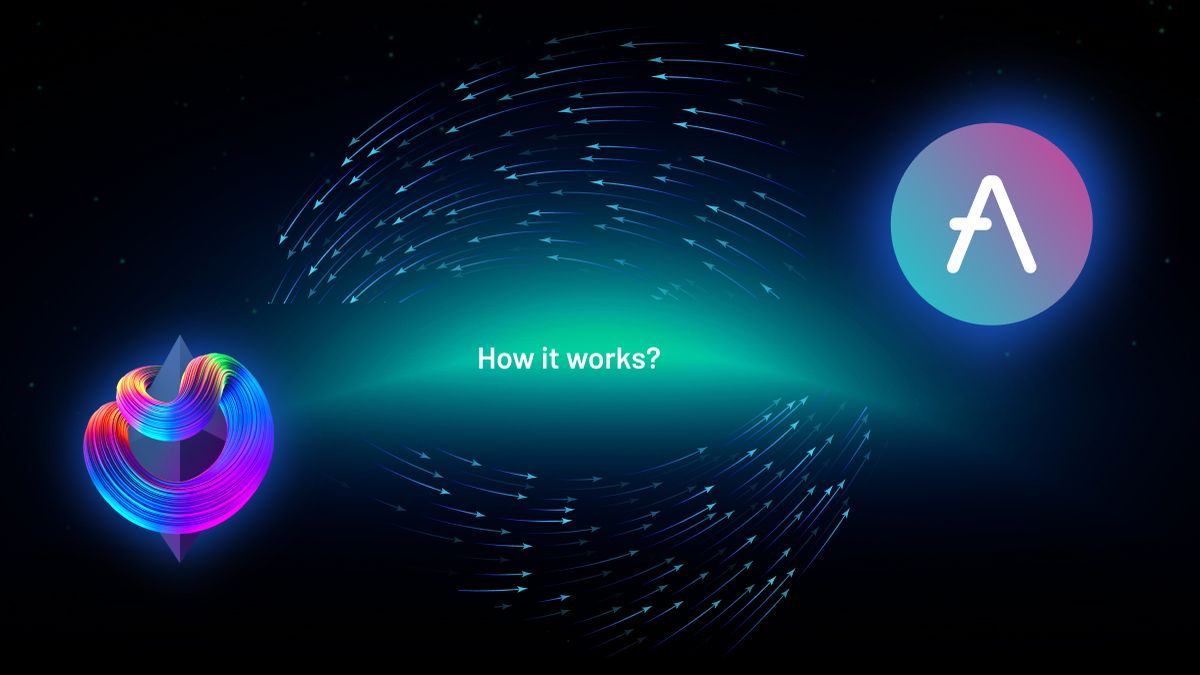
The Data Science Behind Sommelier’s First Aave Cellar
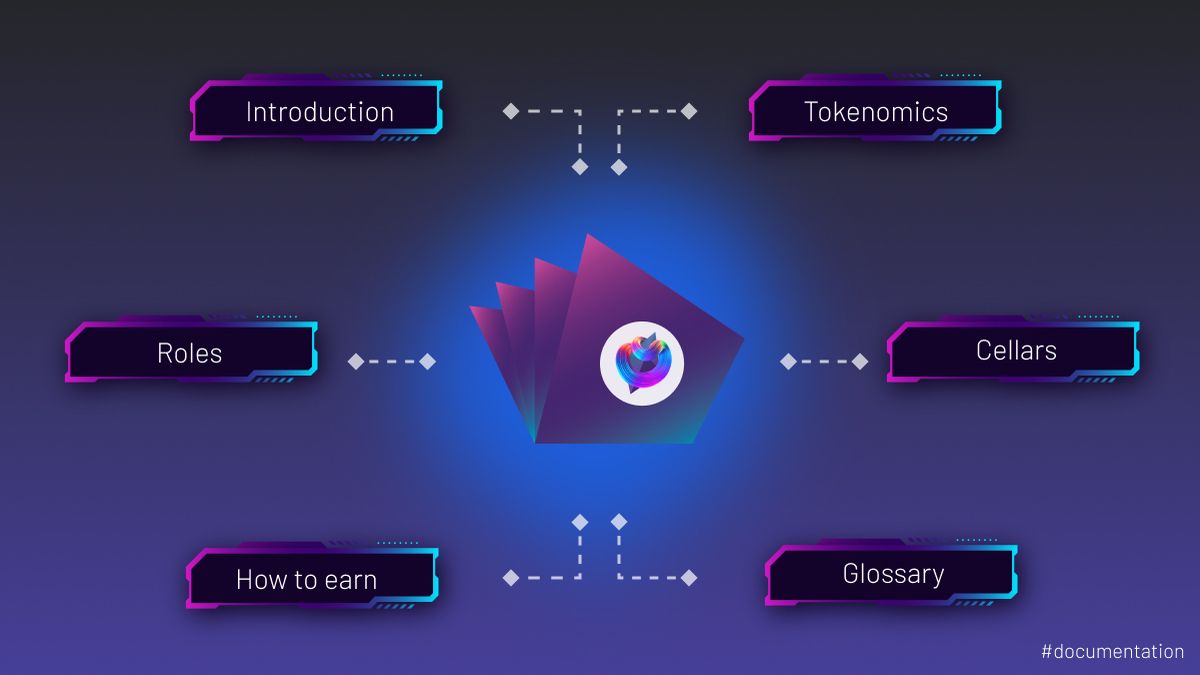
Sommelier Protocol Design Documents
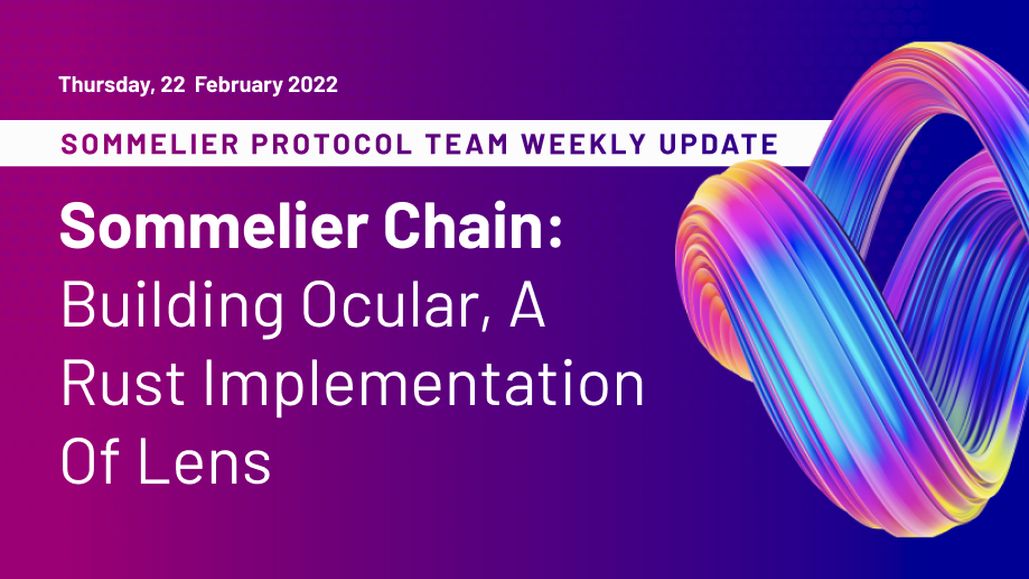
Sommelier Protocol Team Weekly Update #9
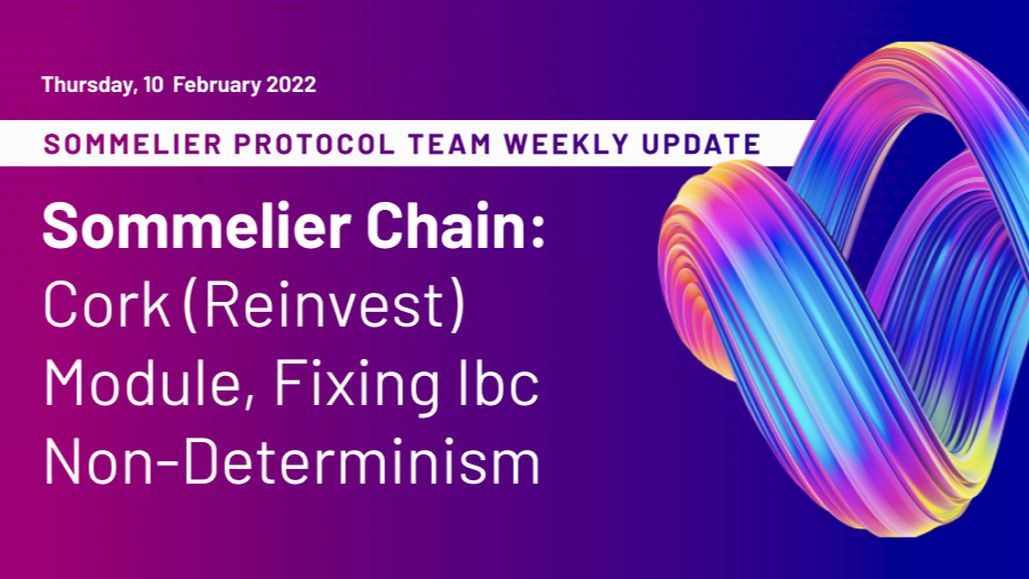
Sommelier Protocol Team Weekly Update #8
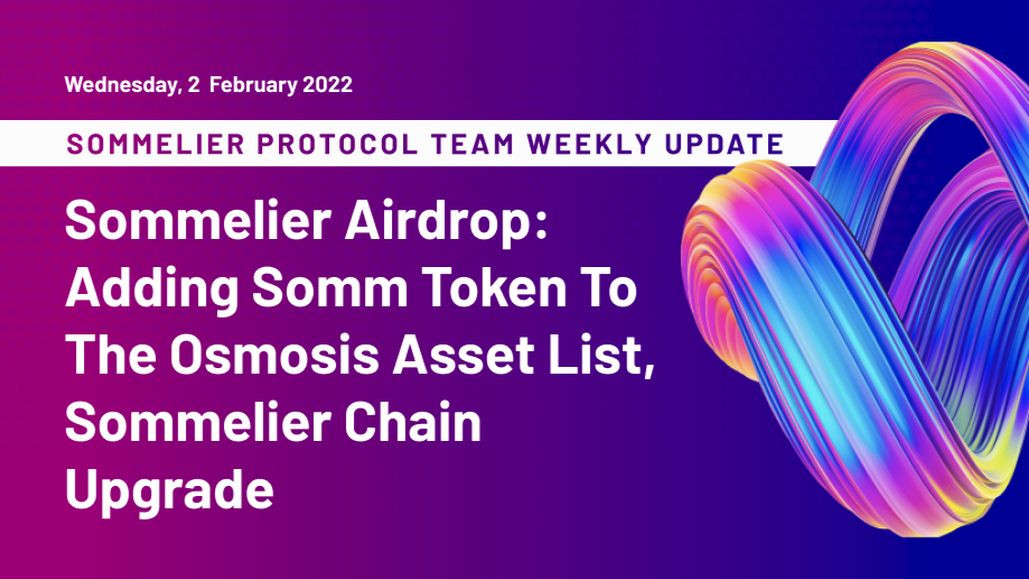
Sommelier Protocol Team Weekly Update #7

Twitter Spaces With Sommelier: How to Launch a Cellar on Sommelier

Twitter Spaces With Sommelier: Protocol Upgrade and Community Update
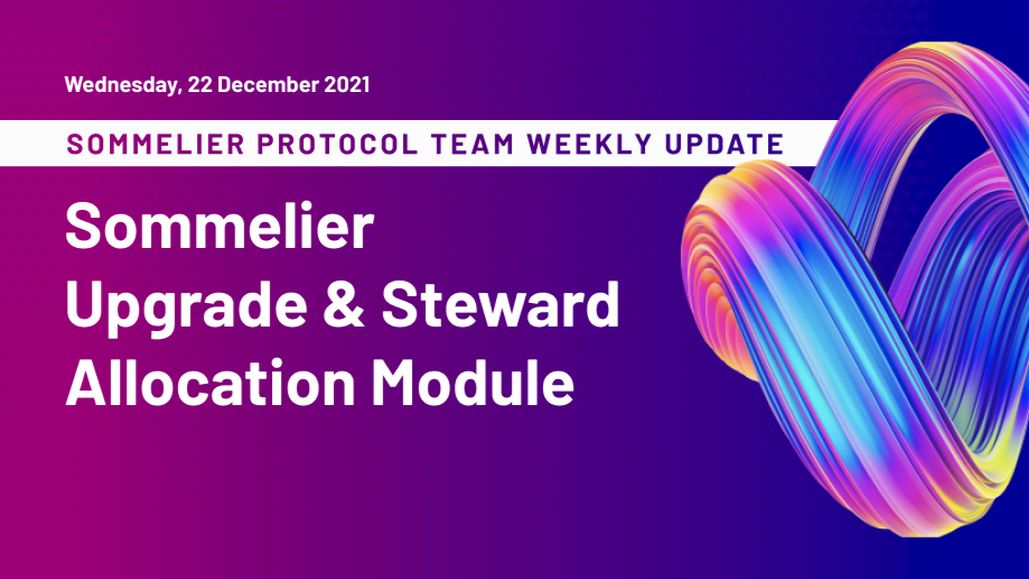
Sommelier Protocol Team Weekly Update #4
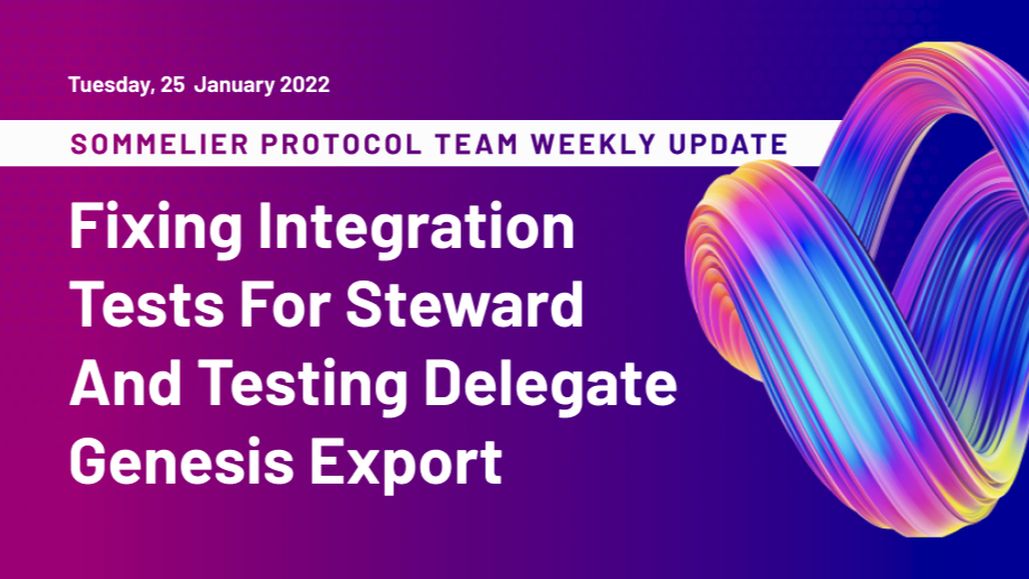
Sommelier Protocol Team Weekly Update #6

Twitter Spaces With Sommelier: SOMM Airdrop Proposal Data Analysis

Twitter Spaces With Sommelier: Community Update on the First Cellars to Launch

Twitter Spaces With Sommelier: Exploring NFT Cellars
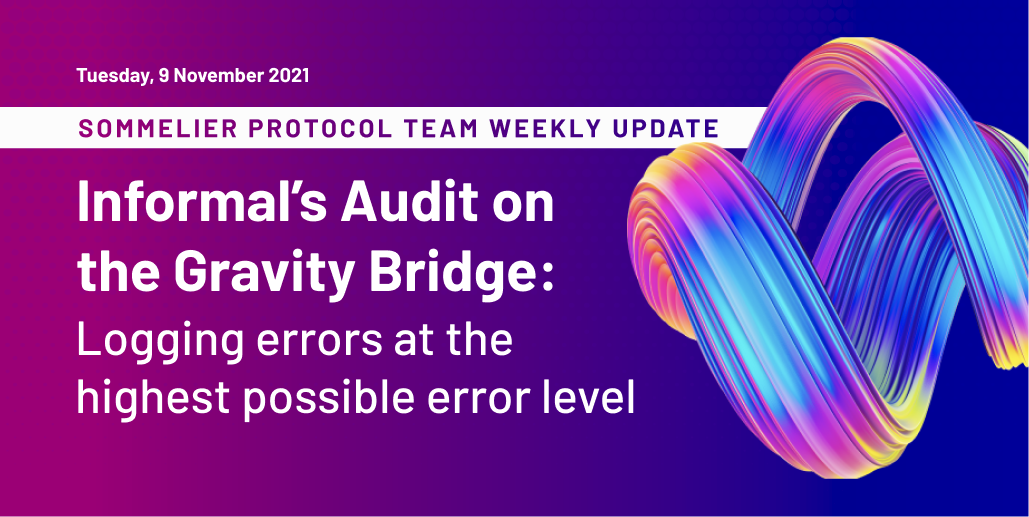
Sommelier Protocol Team Weekly Update #1

Sommelier Protocol Team Weekly Update #2
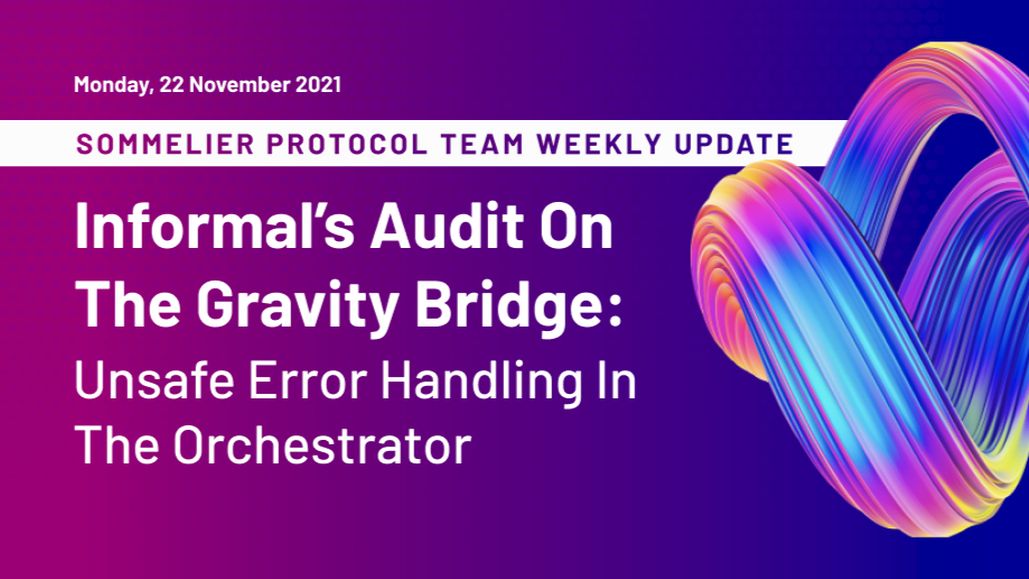
Sommelier Protocol Team Weekly Update #3

Three Things You Need to Know About Sommelier Governance This Week

Sommelier On the Road: PROOF OF…REPUTATION

Introducing Ukpai Ugochi - Working on The Sommelier Cellars Rebalancer

Sommelier Announces 23MM Series A Mainnet Round to launch Automated DeFi via the Cosmos

Twitter Spaces With Sommelier: Mainnet Launch & Gravity Bridge

Twitter Spaces With Sommelier: Introducing SOMM Tokenomics

Twitter Spaces With Sommelier: Mysten Labs AMA With Evan Cheng

Introducing SIPS and Sommelier’s Governance Structure

Twitter Spaces With Sommelier: End of Year AMA 2021

Twitter Spaces With Sommelier: Intro to SIPS & Lisbon Blockchain Week

Twitter Spaces With the Sommeliers: Mainnet Update and Governance Launch
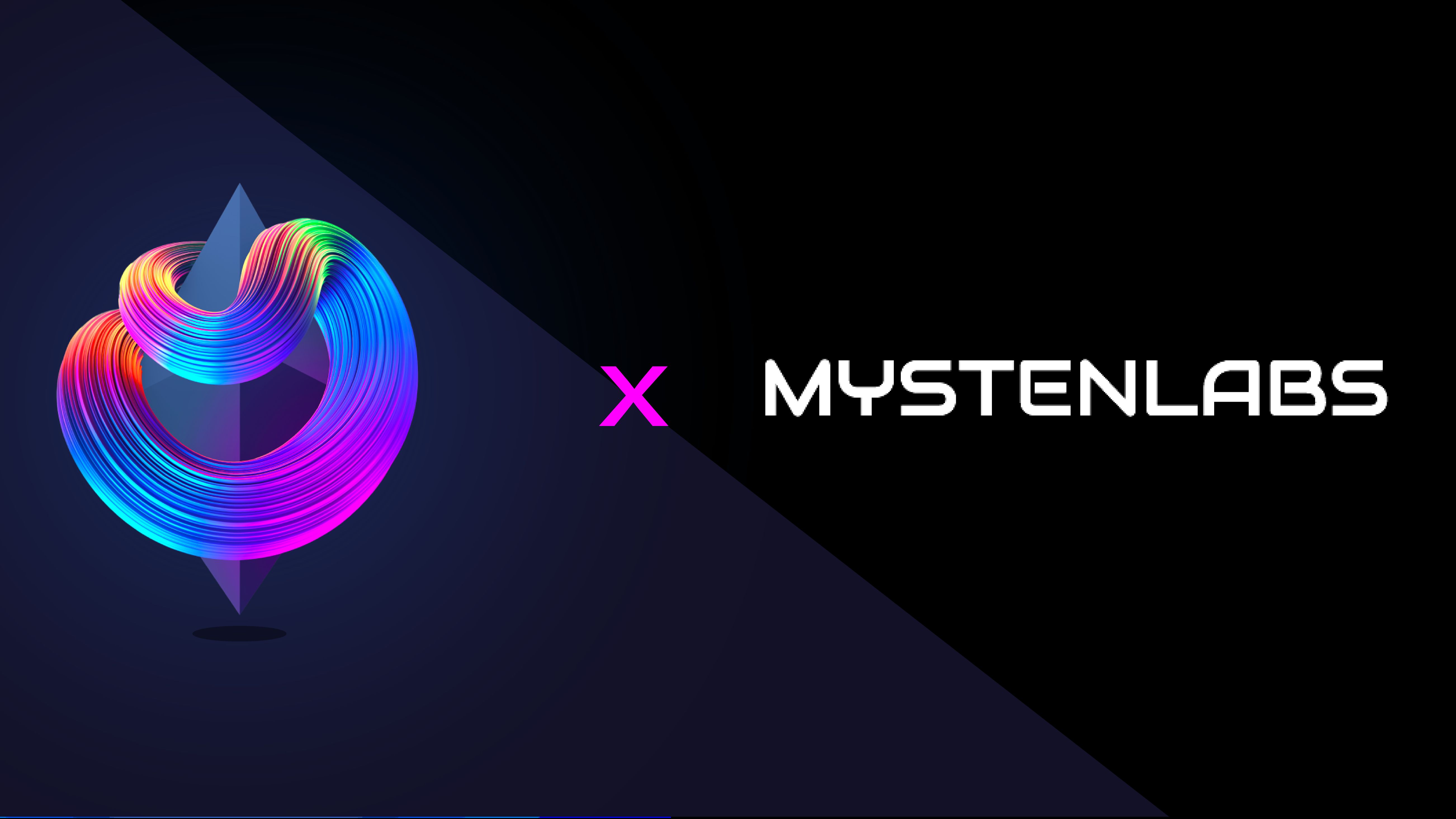
Sommelier Partners With Mysten Labs to Make Sommelier and All Cosmos Blockchains the Fastest Protocols on the Planet

Twitter Spaces With the Sommeliers: Sushi AMA With Joseph Delong

Introducing the Sommelier Network Mainnet and Ethereum Gravity Bridge

The Top Five Features of the Sommelier Protocol

Call for Validators: The Two Step Process for 2021

Two New Features Launched to Test Liquidity Management on Uniswap v3

Uniswap v3 Remove Smart Contract Incident Post Mortem for Sommelier
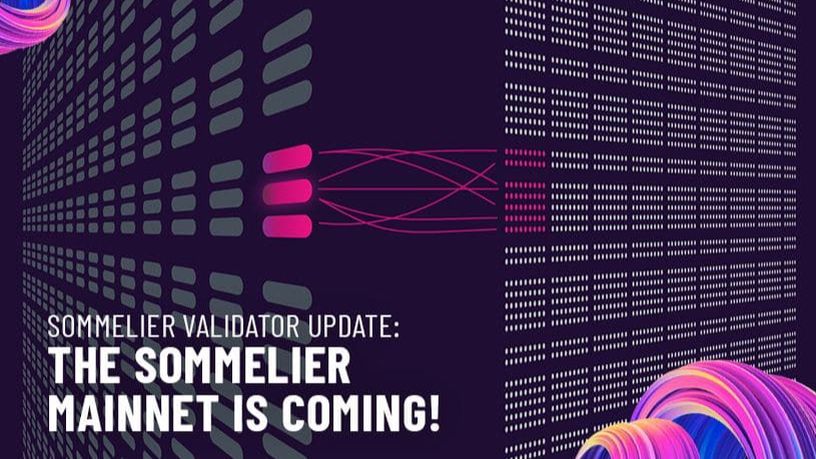
Call for Validators: Road to Sommelier Mainnet

Sommelier Liquidity AMA With Yenwen and Nick From Perpetual Protocol
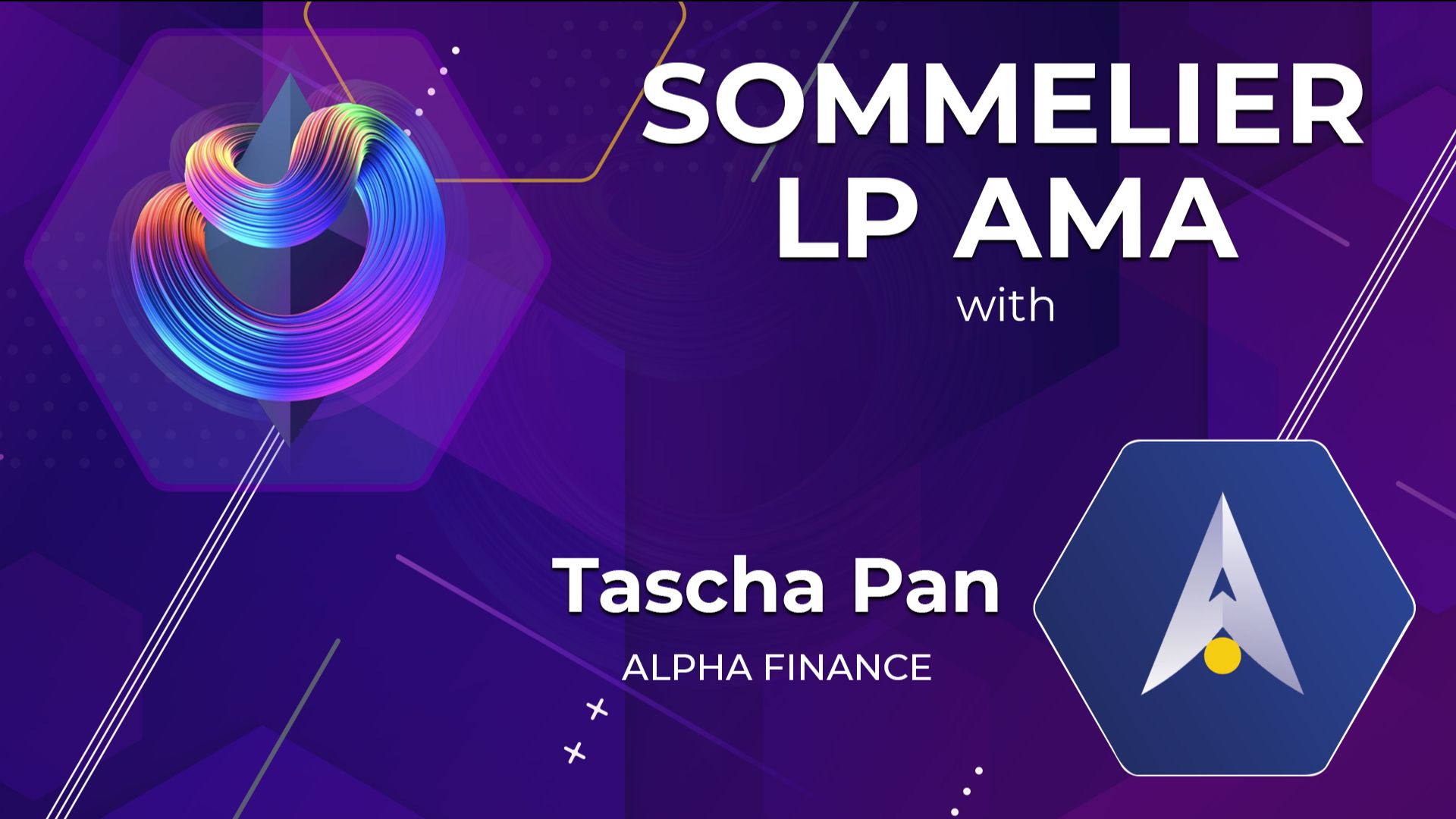
Sommelier Liquidity AMA With Tascha Pan From Alpha Finance

Sommelier Liquidity AMA With Loi Luu From Kyber Network

Sommelier Liquidity AMA With Alex From Peanut

Sommelier Liquidity AMA With JP From THORChain

Sommelier Liquidity AMA With Alan Chiu From OMGX Network

Sommelier Liquidity AMA With Ari From Gelato Network
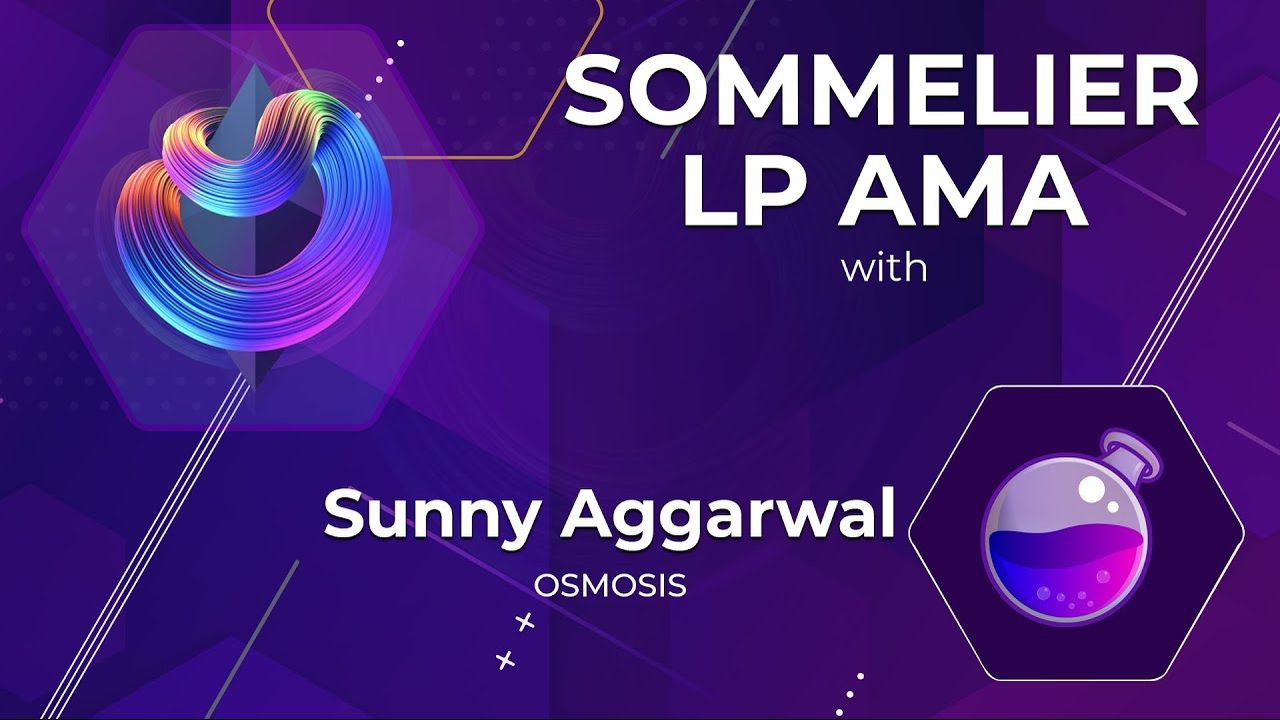
Sommelier Liquidity AMA With Sunny Aggarwal From Osmosis

A Fine Sommelier Explanation of Bollinger Bands With Kevin Kennis
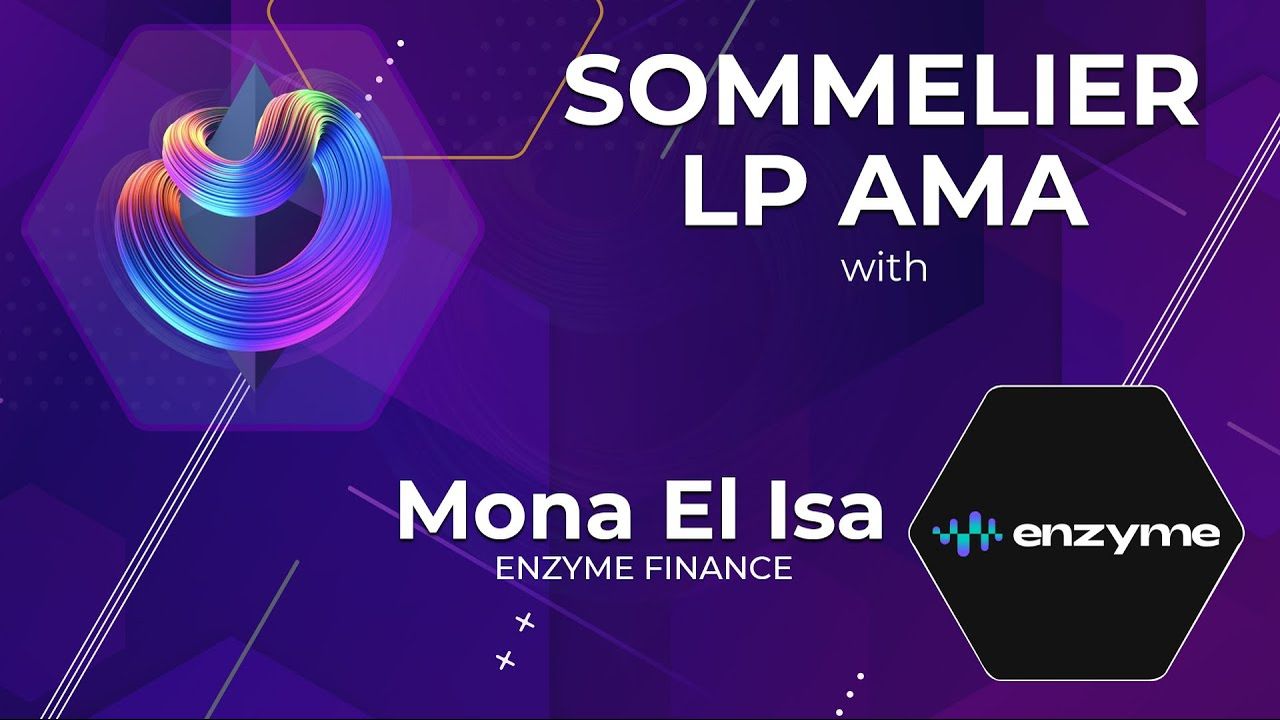
Sommelier Liquidity AMA With Mona El Isa From Enzyme
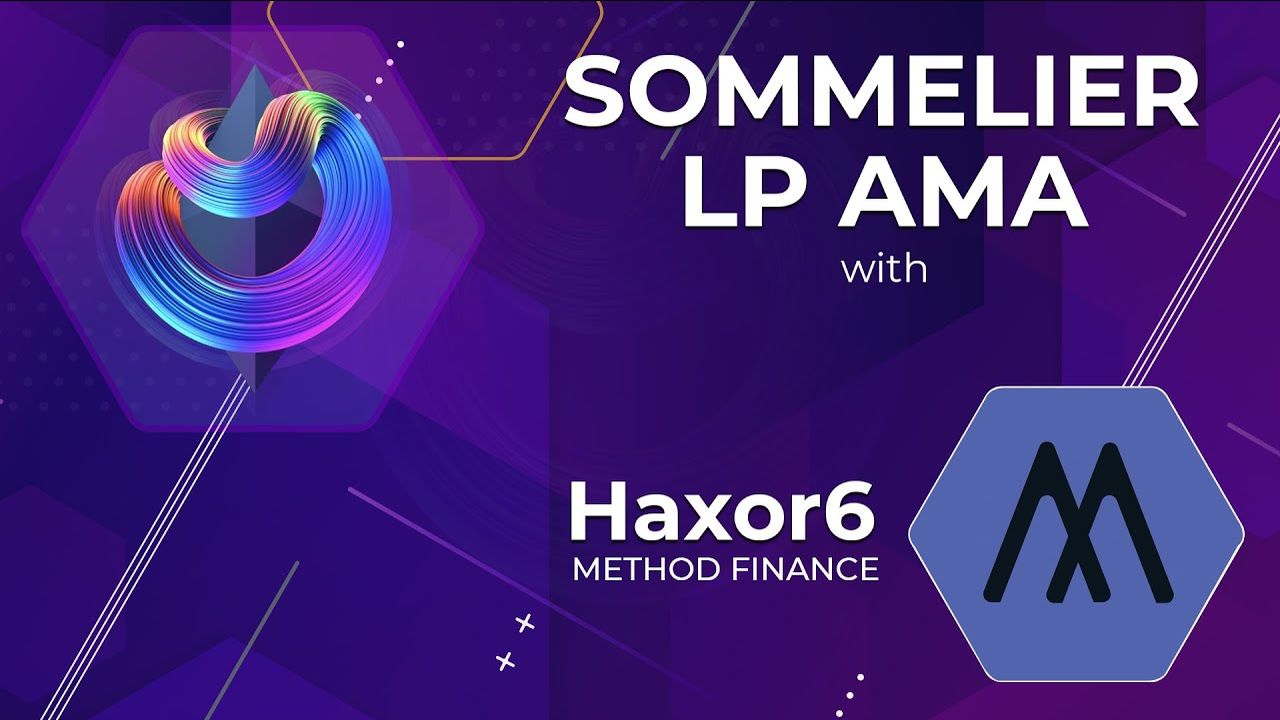
Sommelier Liquidity AMA With Haxor From Method Finance

Sommelier Liquidity AMA With Tor From Secret Network

Liquidity Provider Insights With Zaki Manian - Ep. 7 - DeFi Automation Space on Uniswap v3 and Where Sommelier’s Heading

Sommelier Liquidity AMA With Geralt From CyberFi

A Pairings Tutorial of Two Sided Liquidity Addition with Sommelier

Liquidity Provider Insights with Zaki Manian - Ep. 6 - Liquidity Providers Need to Gear Up for a Multi-Chain World

Three New Summer Features for Liquidity Providers

Sommelier Liquidity AMA with Tom C and Max W from Charm

Sommelier Liquidity AMA with Dereek69 & Shalaquiana from BIOPset

Sommelier This Week - June 3rd 2021: The Road to Mainnet

Sommelier Liquidity AMA with Federico Landini from DefiLab

Sommelier Liquidity AMA with Michael Egorov from Curve

Liquidity Provider Insights with Zaki Manian - Ep. 5 - A Bright Light at the End of a Long, Tough Weekend for Bitcoin

Sommelier This Week - May 27th 2021: What Aspiring Sommelier Validators Need to Know on Last Week’s Protocol and App Progress

Liquidity Provider Insights with Zaki Manian (Special Edition) - Ep. 4 - New Pairings Release

Sommelier R&D AMA With Yaniv Tal From the Graph

Sommelier Liquidity AMA with MacLane Wilkison from NuCypher

The Eight Steps to Become a Liquidity Provider with Pairings
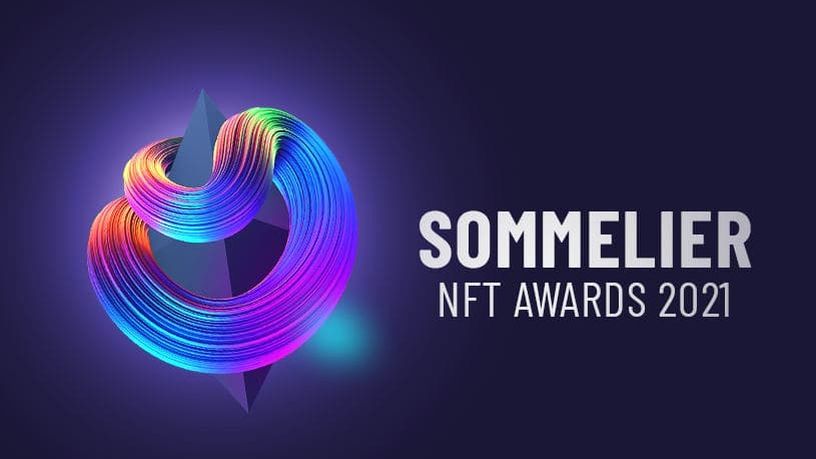
Sommelier NFT Awards - May 18th, 2021
Pairings By Sommelier: The FAQ

Zaki Manian Breaks Down What Liquidity Providers Need to Know Under Uniswap v3

Sommelier This Week - May 6th 2021: How This Week’s Protocol and App Progress Weaves Together to Make a Product

Sommelier Liquidity AMA with Dan Thomson from InsurAce

Sommelier This Week - April 29th 2021: Weeks Away From a Taste of the Sommelier App Experience and How the Dev Team Stays on Track

Zaki Manian Breaks Down a Phase Change Liquidity Providers Need to Know About Automated Market Makers

Introducing Jehan Tremback: Sommelier Core Developer and Althea Co-Founder that pushes the Limits of the Blockchain Bridge with Gravity

Sommelier This Week - April 22nd 2021: An Inside Look at Progress on Coordinating Sommelier Components That Contribute to the Chain

Sommelier This Week - April 15th 2021: Providing a Best-in-Class Experience for Uniswap Liquidity Providers

Sommelier Announces $1M R&D Grant from The Graph Foundation

Introducing LP Rewards: This Week With Cellframe

Introducing Deborah Simpier: Althea CEO and Sommelier Co-Founder Who Brought the Gravity Bridge to Life in The Cosmos

Sommelier This Week - April 8th 2021: What Uniswap v3 Means For Sommelier Architecture and Validators

Introducing Sommelier LP Rewards Program

Sommelier This Week - April 1st 2021: Gravity Bridge and Private Testnets

Blockchain startup decides to acquire a California winery and host NFT wine parties

Introducing Justin Kilpatrick: The Blockchain Bridge Wizard Who Maintains Gravity

Five Ways UniswapV3 changes the world for Liquidity Providers on the AMM

Introducing Jack Zampolin: On Becoming A Sommelier in The Cosmos

Sommelier: Welcome To The New CoProcessor For Ethereum
© 2025 Somm by Bajanss OÜ –Maakri 36-50, Tallinn, Estonia 10145